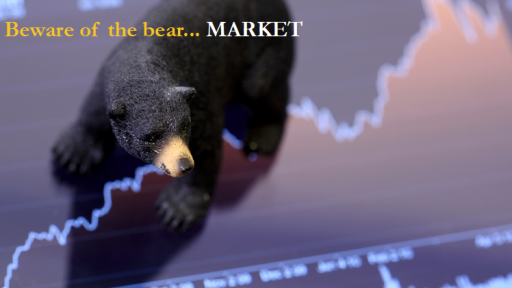- Home
- >
- Fundamental Analysis Education
- >
- Bear Markets Are an Integral Part of Investing

Bear Markets Are an Integral Part of Investing

While there is no official definition, a bear market has traditionally been defined as a 20% decline in a broad stock market index. Since the end of World War II, we have had 13 bear markets, with an average decline of about 30%. Needless to say, bear markets can be horrifying. We not only have to watch the value of our accounts decline, we have to do so amidst panic and media speculation about the coming end of the world.
One way to avoid bear markets is to just avoid stocks altogether and only invest in risk-free investments such as Treasury bills. But when you consider how that strategy has fared historically, there is really no comparison.
For the period from 1946 until the end of 2015, the long-term annualized rate of return on the S&P 500 index was approximately 10.9%. Meanwhile, the long-term annualized rate of return on one-month Treasury bills was 4.1%. Net of inflation, stocks netted real returns of 6.9% annualized while Treasury bills returned only 0.4%.1
Why did stocks return 6.5% more per year than Treasury bills? Because of risk. In other words, it’s the volatility of stocks, the same volatility that produces those horrifying bear markets, that is the very reason why stocks earned so much more than risk-free Treasury bills. Bear markets, in other words, are necessary. Take away bear markets, and you take away the higher returns. (For related reading, see: Volatility's Impact on Market Returns.)
A Bear Market Is Coming
It has been eight years since the end of the last bear market, and our crystal ball is telling us that the next bear market is coming. Unfortunately, we have no idea when. It could arrive this year, next year, or five or 10 years from now when stocks are worth much more than they are now. We just don’t know.
So if the next bear market is coming, but we don’t know when, what do we do? First, trust in your plan. A well thought out financial plan not only takes into account the inevitability of bear markets, but actually expects them to occur. Your well-diversified investment portfolio was constructed to plan for your liquidity needs so that you are in a position of control—you don’t need to sell at an inopportune time just to meet your cash flow needs. Your plan is what will prevent you from turning temporary paper losses into permanent economic damage—stick to it.
Source: Bloomberg
 Varchev Traders
Varchev Traders Read more:
If you think, we can improve that section,
please comment. Your oppinion is imortant for us.











